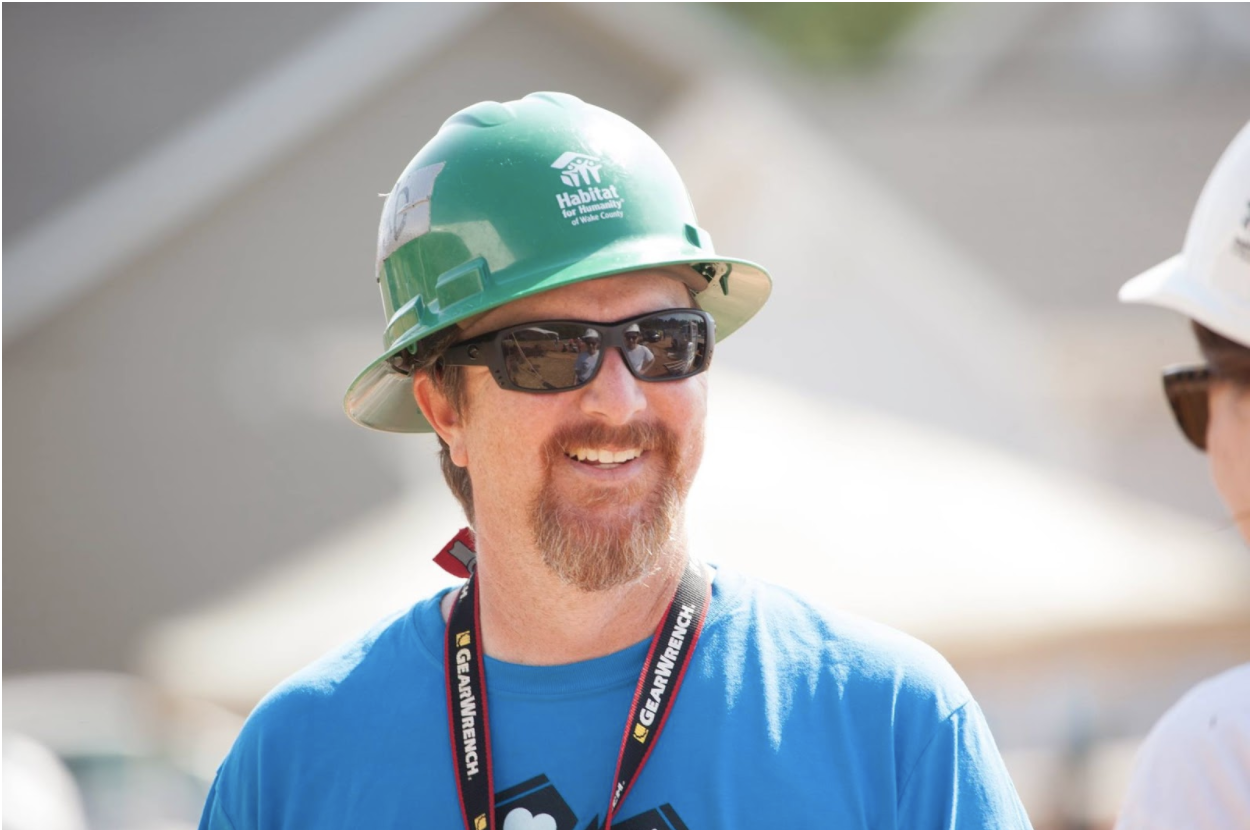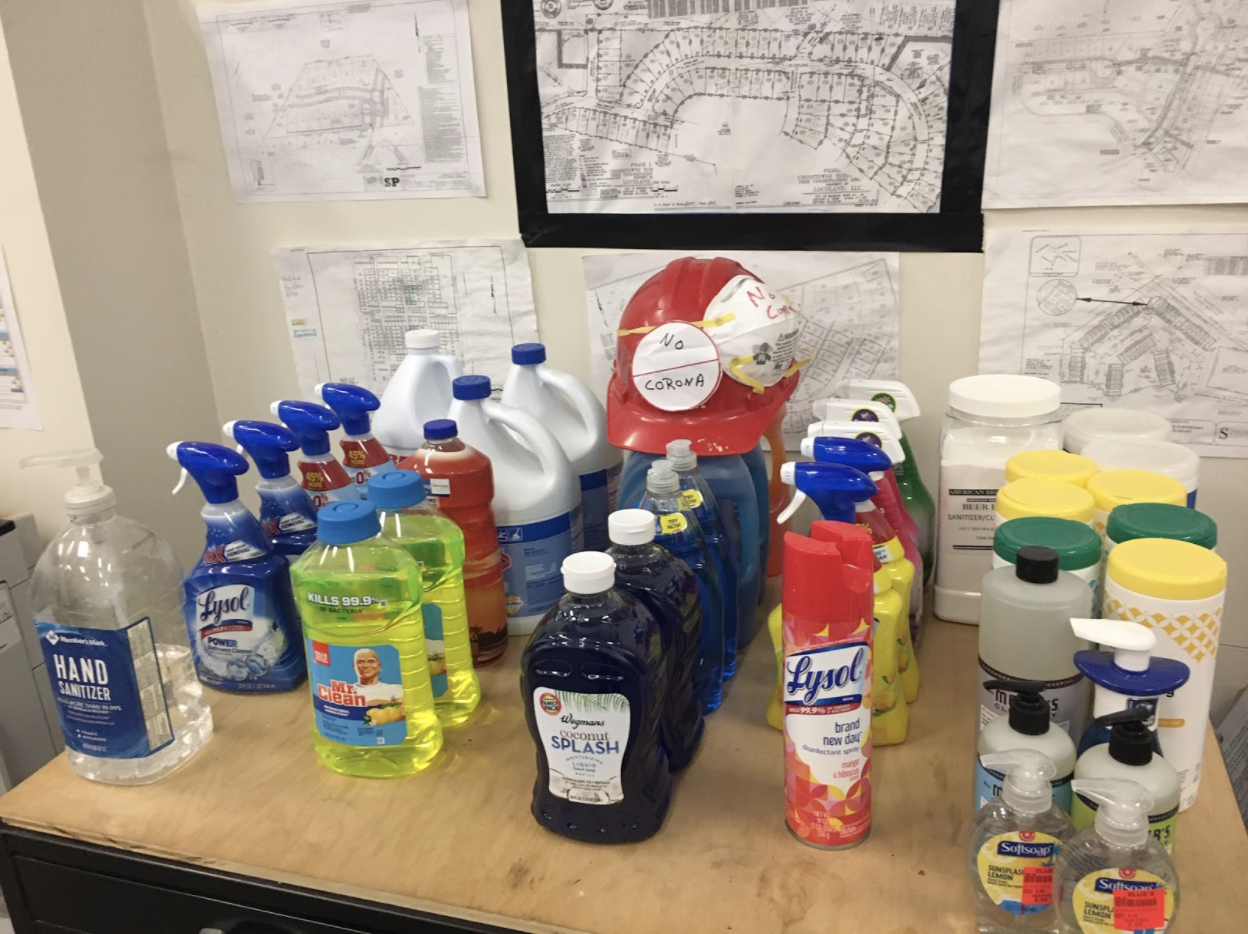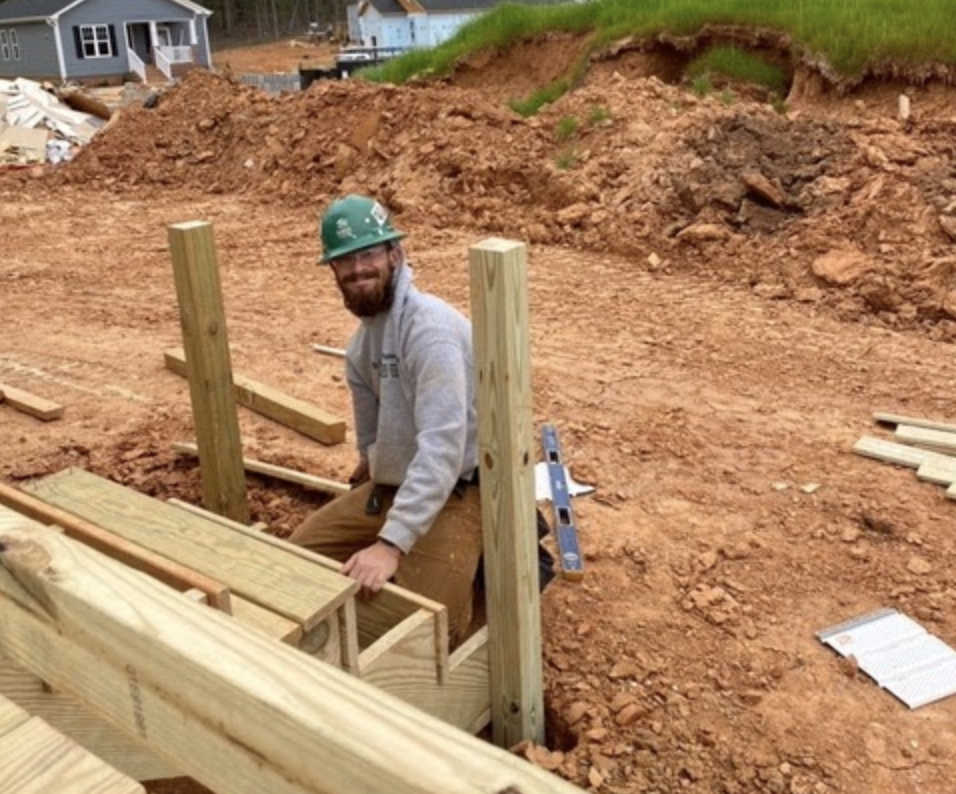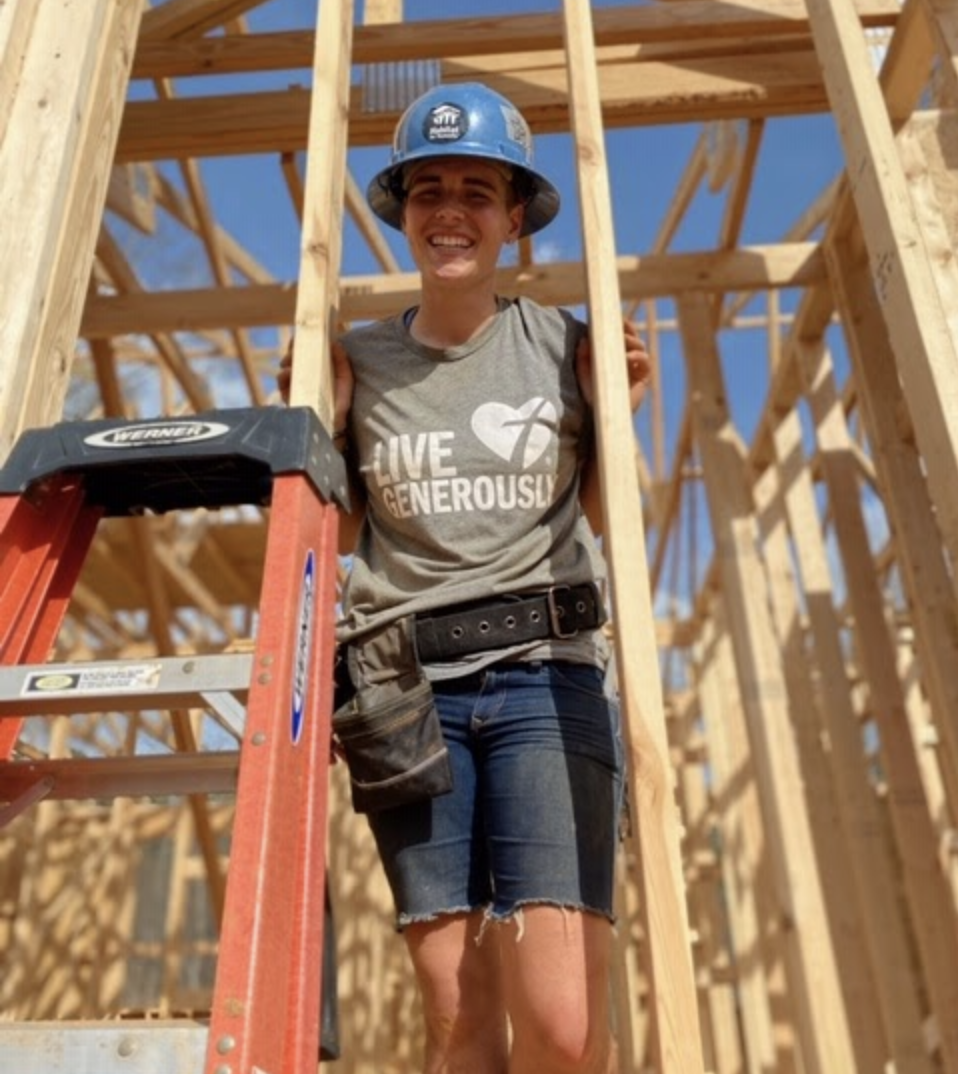
This post is a part of our new "Behind the Scenes at Habitat Wake" Q&A staff series. Get a chance to learn more about what we're currently doing to help move our mission forward during COVID-19. Check back to meet new faces and read a little about the people who make up our great team.
How big is your team?
Our Construction department is twenty-four people, with a mix of people who work out in the field and behind-the-scenes in the office and warehouse. However, it’s the hundreds of you homebuyers and volunteers out there that include as part of our team that we are missing on site right now the most.
What is your department’s top priority right now?
Even when there’s not a pandemic, our top priorities are safety and making sure people have a positive experience on site. That is no different today, as our awareness is heightened to both those factors during such a trying time. From a construction standpoint we are focusing on our nine newest homes that are nearing completion in Garner, Raleigh and Wake Forest: we are working on getting COs and getting them ready for homeowner closings.
How has COVID-19 impacted your team, and how are they working around it?
Like the rest of the country and world right now, we are feeling the effects of COVID-19. The construction industry has been deemed an essential function during this time, so we have continued working with updated safety practices.
Our team has always been required to adapt to ever-changing conditions building homes with Habitat, so they have been handling these extreme changes well. We unfortunately (but wisely) had to stop working with volunteers and homebuyers on sites to reduce the number of people overall, which significantly impacts how we build. We’ve had to work with more subcontractors and spread our team members out on projects so they aren’t working close together. We just adapt our work schedule every week — if not every day — as the circumstances and guidelines change in our area.

[The warehouse is well-stocked with cleaning supplies]
What are some examples of the day-to-day work you are doing?
Day-to-day is just that right now. Every day brings new information and new challenges as to how we perform our work. For example, our team is scheduling subcontractors but coordinating to make sure that no one else is working on the house at that time.
Also, some of our inspections have to happen remotely over devices like cell phones using FaceTime to show an inspector parts of the house that would normally happen in a face-to-face interaction. While working within the small teams we have, each person is responsible for disinfecting and cleaning all tools being used and people are assigned to their own set of tools to avoid sharing. When going to pick up materials at stores like Lowe’s or at lumber yards, social distancing practices are in effect with lines taped off 6’ apart from each other when waiting to pay in line, and large plexiglass sneeze guards are in front of every register.
How is your work impacting Habitat homeowners and homebuyers?
While we are striving to still have the homes completed for homebuyers to close on them, we have had to greatly reduce our interaction with these families. They cannot be on sites doing their sweat equity for safety reasons, so conversations happen via phone. We also have not been able to meet in-person for any of our Home Preservation or warranty work, either doing over the phone or postponing non-emergency items until a later date. We miss the personal interactions with our families, but one inspiring example of this relationship is when we had one homebuyer recently offer to deliver lunches to our construction team on site even though they couldn’t stay. It was a wonderful gesture & much appreciated.

[Plenty of ways to work solo on the build site, as demonstrated by Vinny]
What additional safety measures has your department employed?
Those of our staff in the office are now working remotely from home. Those on sites have had to cancel all volunteers and homebuyers out there, and reduce our team into very small groups to limit overall interactions. Appointments/inspections are being handled over phone or video calls like FaceTime. No shared drinking water coolers, just using water bottles. Each small team disinfects and cleans tools being used, and assigns them to people to avoid sharing. Cleaning supplies like disinfectant sprays & wipes, hand soap washing stations and hand sanitizer are used on sites. We have some dust masks, gloves and goggles as PPE to help protect.
What is the biggest challenge to your department during this time?
While it is an important distinction to be deemed essential in a time of crisis, it is also a bit unnerving and stressful. We recognize we are not as on the front-lines as medical professionals or first responders are, and they deserve the utmost respect and thanks for that. However, being another type of essential function comes with its own pressure as we at Habitat work hard to finish homes for families who are among the most vulnerable of us and in need of a place of security. Our team is braving the environment, staying as safe as we can, and trying to provide that stability for others in the process.

[Erin is productive even while working at a distance!]
What is making your team feel hopeful?
While there is so much uncertainty currently in the world, and not knowing what the near future will hold, we are still looking forward to tomorrow. We are looking forward to these families having a place to call home. We are looking forward to all of our faithful volunteers to return to our sites and the fellowship that provides. We are looking forward to a brighter day where we can all come together again. We are alone but together.